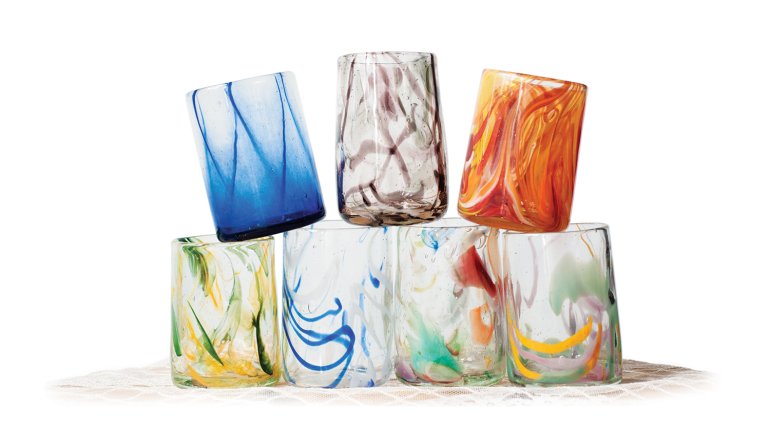The Olio
The Olio
As a sophomore at the University of Illinois, Rebeccah Byer was “kind of floundering in school and not really finding my fit.” She had taken a few art classes and wanted to take pottery that year, but when it was full, she opted for a glassblowing course.
It was a match. “I just totally fell in love with the medium and the process,” Byer says.“It brought me back into school and really gave me a very focused direction for my life. I was 19 and felt like I just had no clue what I wanted to do, and furnace glassblowing just shifted me to a path.”
Now, more than 20 years later, Byer guides others down the path as the founding executive director of the Olio, a nonprofit glassblowing facility in Winston-Salem, North Carolina. The Olio has two full-time employees – Byer and another artist, Sarah Band. Otherwise, apprentices from 14 to 24 years old learn skills in both glass techniques and business as they help run the shop. Some are high school students working for academic credit; others are paid through local programs such as Goodwill. But everything they learn can be applied in or out of the hot shop. “There’s sort of a different experience every day, because that’s what it’s like to run a business,” Byer says. “We include [the apprentices] in everything we do.”
“Everything” includes hosting field trips for students, company team-building exercises, and private workshops; Byer enjoys providing what she calls the “bucket-list experience” of working with glass. The program also includes contributing to an eye-catching line of products. The Olio sells a wide range of glassware such as tumblers, candleholders, and Band’s macabre sculpture – one piece depicts a lab rat growing a human ear out of its side – and the apprentices learn on the job.
In fact, Byer says, “there are [products] we design and develop specifically to help the apprentices learn,” starting with the basics. One vase, for example, takes its shape from pulling, a more manageable technique for a beginner than trimming. Then apprentices can move on to more advanced work, helping to make bathroom sets or even sculptural work.
Besides helping people develop professional skills and, potentially, a trade, the Olio has an environmental mission. Much of the work the company produces is made of repurposed glass, which promotes sustainability and imparts a practical lesson. “I think it’s really necessary to teach artists how to be more creative if they can’t afford materials,” Byer says.
The Olio has created its own recycling business, using a flux formula developed by Oaxaca glassworker Christian Thornton; when added to tough glass like liquor bottles and mason jars, it breaks it down and makes it malleable. This program also lets the nonprofit open its doors even wider. “It helps us introduce people into our entrepreneurial studio in a low-skill way,” Byer says. “They don’t have to be an artist, they don’t have to be a glassblower; they don’t really have to know anything to process bottles.”
They just have to take the first step on the path – which, as Byer knows, can make all the difference.

